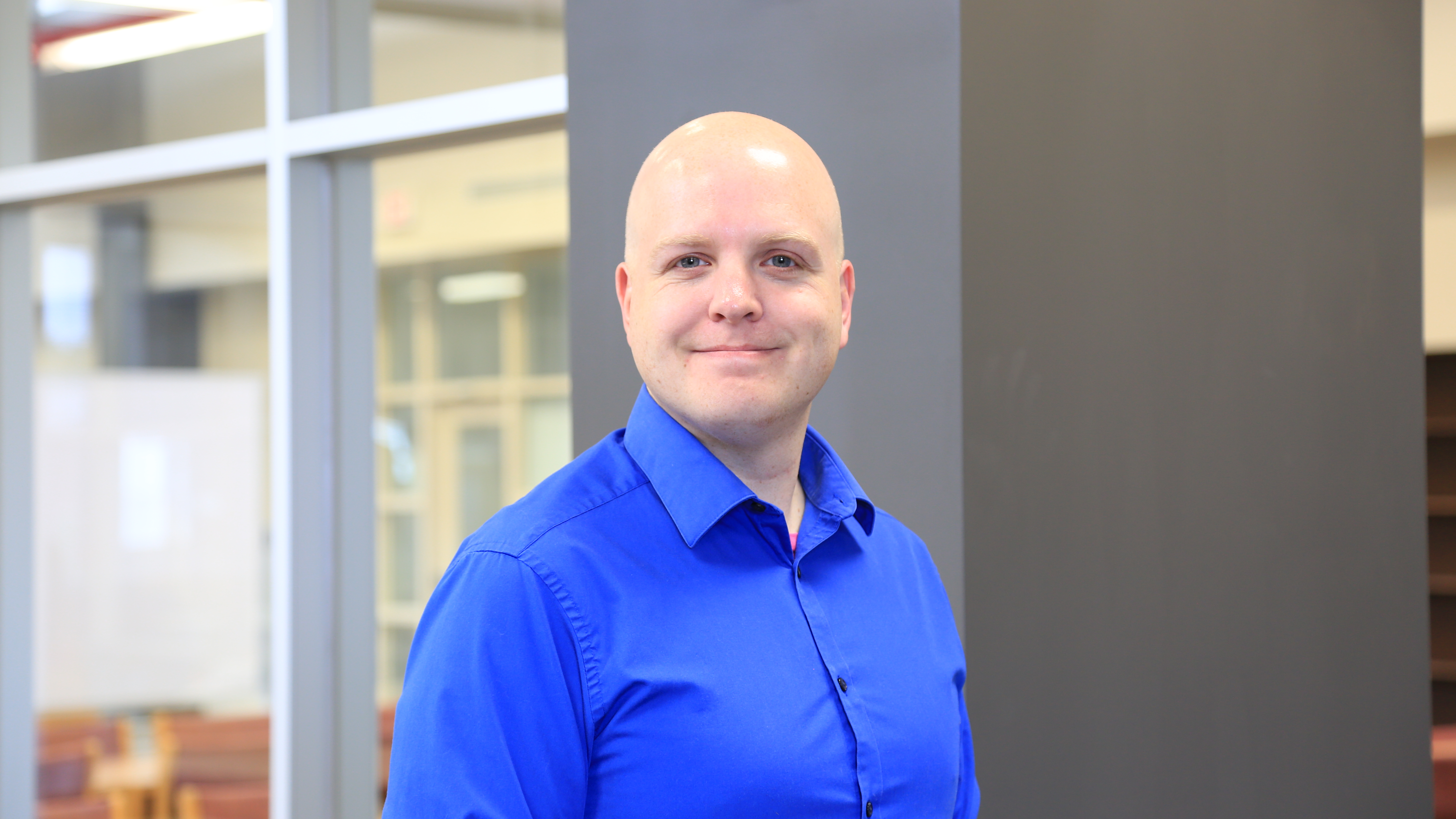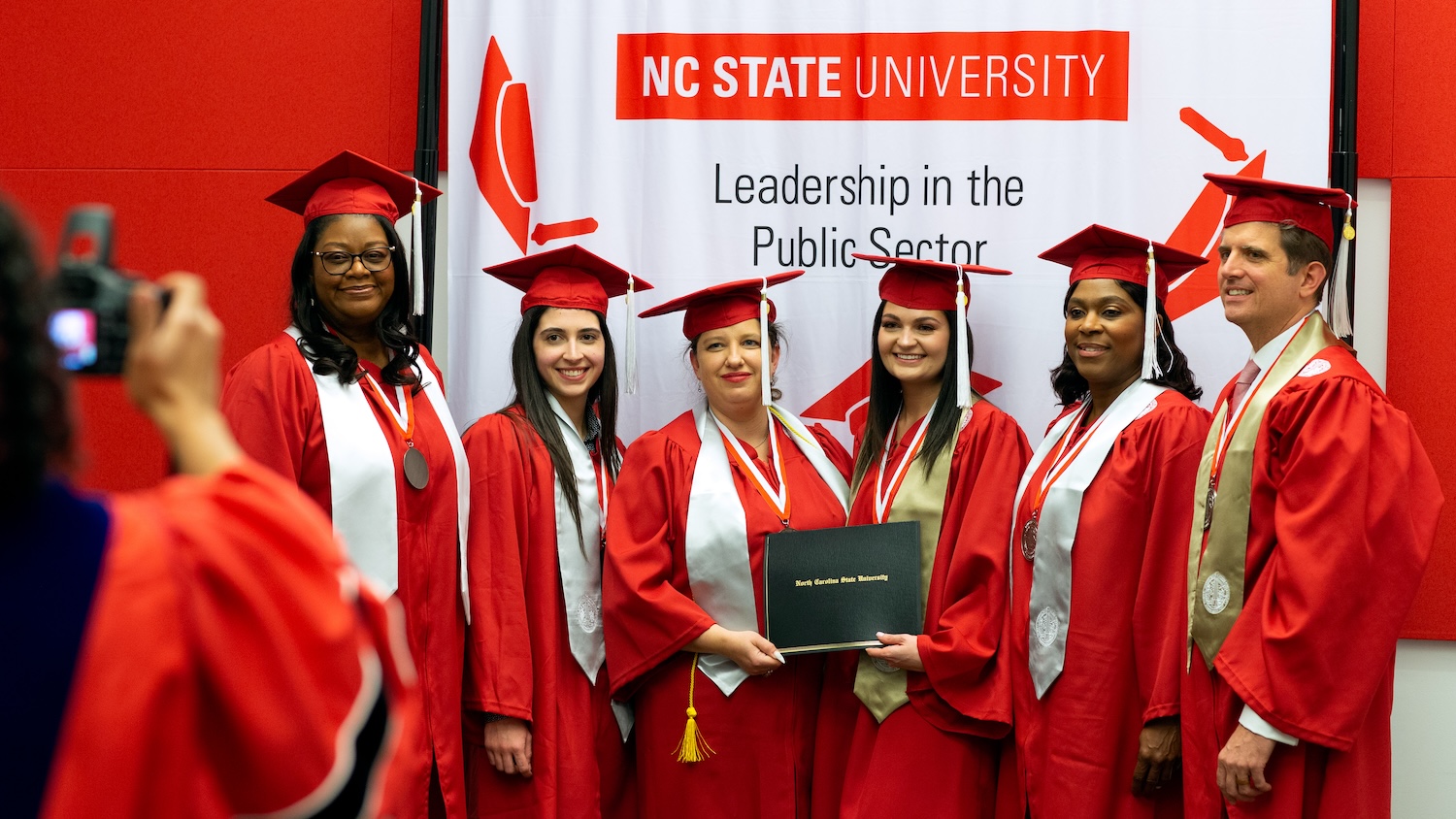Textile Online Programs: Providing a Rich, Engaging Learning Environment

Andy Click is the NC State Online and Distance Education specialist for the College of Textiles.
“Prior to joining the College of Textiles a little more than a year ago, Click held various roles within NC State that helped position him for success in his current position.
Click attended NC State as a student. He then started his career at NC State at the old OIT desk which led him to a job with NC State Distance Education and Learning Technology Applications (DELTA). There, he performed technical support and helped manage the LearnTech Helpdesk.
While at DELTA, Click became curious about instructional design. He received on-the-job training at DELTA, which turned into a position with the College of Natural Resources. Click said he helped the College of Natural Resources with modernizing their Online and Distance Education courses.
Now, after being with the university for 17 years, Click has found a home with the College of Textiles.
“At Textiles it’s been about getting programs fully online,” Click said. “For the last year and a half we’ve been modernizing courses to make them more engaging and provide rich online classroom environments that accurately replicates the experience of our on-campus students.”
Textiles offers 68 courses via NC State Online and Distance Education. He’s helped revamp 47 of those courses, with 20 more in process, including new courses that are in development.
Some of his early projects included updating TMS 211: Introduction to Fiber Science and PCC 302: Technology of Textile Wet Processing. TMS 211 is considered a flagship course for Textile online students.
“It had actual self-paced modules and it had student engagement but it wasn’t very interactive,” Click said. He said students interacted with the material and instructor, but never with each other.
“One of the first things we did was try and add a peer interaction component to it to recreate that sense of community in the online course because that’s kind of the first thing students lose when they go online,” Click said. He explained that he and the college were able to achieve this mostly through Moodle by specifically creating and using forums.
“We gave students instructions on how to collaborate with each other in real time,” Click said. Most of the instructions were on how to use Video Chat programs and Collaborate.
“A lot of students tended to use forums because the text and asynchronicity was a lot more important,” Click said.
In addition to TMS 211, it was important that PCC 302 became more modernized since most, if not all, of the degree programs require the course.
“Its distance education (DE) offering was actually initially just a capacity problem,” Click said. Click said there was not enough physical classroom space on campus to get students through the course in a given semester. Now the course is offered to true DE students through Moodle. Click said they are still working to add an interactive component to PCC 302. Phase two of the project will focus on finding ways to go virtual for the lab component. Click hopes to launch that project in Summer 2018.
Besides forums and virtual components, animation is another way the College of Textiles has been modernizing some of its courses.
“The animations have been pretty key for us, especially a lot of our courses or labs that involve textiles machinery. Even for students who are physically in the space, looking at the machine work, they can’t see everything. The animations allow us to explode that model and show them things that they could not physically see looking at the outside of the machine,” Click explained. He believes this is essential for both online and on-campus students.
The progress of transitioning or modernizing courses takes time. But it’s one that Click is committed to and he believes the faculty is as well.
“We’ve gotten a lot of faculty feedback on the process. It’s been surprisingly positive,” Click said. Click says they want to prove that students can gain a rich education through Online and Distance Education as well as showing faculty that they can provide a rich learning experience through online courses.
So, what’s next for Textile Online Programs?
“Take our foundational courses and key courses that most students have to take and turn those courses into flagship online courses and stellar examples of next-level DE and rich engagement courses and instruction,” Click said. He hopes to set the bar for online courses. It also helps having a dean that’s committed to providing a quality education to audiences that may not be able to physically attend NC State’s campus.
“We’re hoping to reach that audience, both nationally and especially internationally, to take the expertise that we’ve already got and get it to the people who it’s relevant for,” Click explained. “I want to see if we can lead the curve and push the edge as much as we can in terms of showing that Distance Education can be extremely valuable to students and industry partners. That’s the big goal.”
Interested in Textile Online Programs? Learn more on their website.


